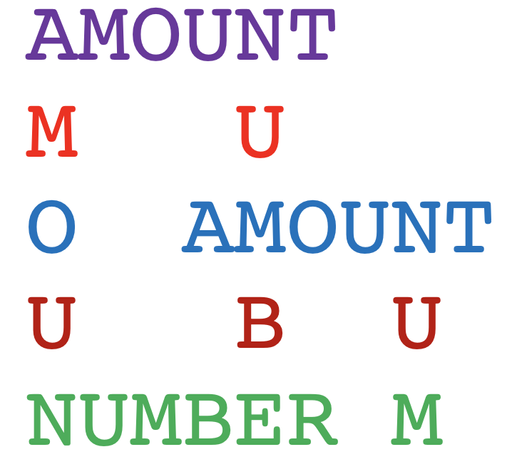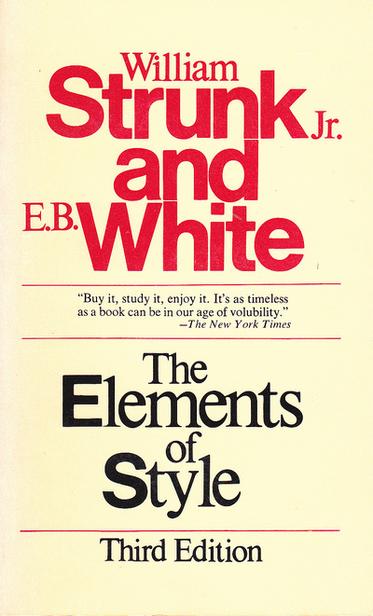The trouble with dangling modifiers
On many vexed matters of English usage, people can be divided into the following groups:
1. those who neither know nor care
2. those who do not know, but care very much
3. those who know and condemn
4. those who know and approve
5. those who know and distinguish.
Thus with wry wit did H. W. Fowler address the existence of split infinitives in his landmark usage dictionary of 1926. He concluded that the first group ‘are the vast majority, and are a happy folk, to be envied by most of the minority classes’.
Dangling catkins in the rural west of Ireland
Even more people are happily unaware of dangling or misplaced modifiers. I mean this kind of thing: Cycling downhill, a truck almost hit me. The writer was cycling, but the grammar implies, absurdly, that the truck was. Or: Born in India, Diya’s education took her to Europe. Diya was born in India, but the line says her education was.
As a copy-editor I’m in category 5: I routinely edit danglers to accord with the norms of formal written English. But they’re not always a flagrant error, and they’ve occurred in English since at least Chaucer’s day.
Let’s take a closer look.
(A note on terminology: The modifier is typically a participle but may be a clause, an infinitive, a gerund, etc. It may be described as dangling, hanging, confused, misplaced, misattached, unattached, unrelated, misrelated, etc. – though, depending on the source, ‘dangling’ and ‘hanging’ may apply only when the intended subject is implied, not just unattached. As a general shorthand, there’s ‘danglers’.)
Many danglers cause little or no harm and are ambiguous only with a feat of imagination. For example:
While replying to your email, the doorbell rang.
The dangling gerund suggests that the doorbell was replying to the email, but it’s commonsensical to infer that the writer was doing so. The questionable grammar is likely to go unnoticed and unremarked upon in informal contexts but might be fixed if the prose were edited:
While I was replying to your email, the doorbell rang.
Sometimes what’s attached to the dangler is not a noun but a dummy ‘it’ or ‘there’:
Looking over the results, there seems to be a consensus.
Who was looking over the results is unclear from the isolated sentence, but it’s probably obvious in context. Dangling participles like this draw the attention of readers sensitized to the problem, such as editors, sticklers, and grammatically versed readers, but go unnoticed by the majority.
To open the lid, it must be pushed down, then turned counter-clockwise.
This dangling infinitive could be phrased more grammatically (To be opened, the lid must…; To open the lid, you must push it down…), but there’s no real confusion or difficulty. As G. H. Vallins writes of the general structure in The Pattern of English (1956), ‘provided the result is not patently incongruous, it is not too lightly to be condemned’.
Some will condemn it anyway, in all possible cases, but there are fewer absolutes in English usage than is commonly supposed. Much hinges on style and context, and what is idiomatic need not be straitjacketed.
Contemporary prescriptive authorities also allow wiggle room. Garner’s Modern English Usage quotes danglers from the prose of canonical authors and reputable grammarians, and says some ‘are acceptable because of long-standing usage’, e.g., Considering the current atmosphere in the legislature, the bill probably won’t pass.
To considering can be added concerning, assuming, allowing for, speaking of, owing to, and many such phrases that have acquired ‘a prepositional or adverbial force’, Vallins writes. These, he continues,
may introduce a phrase that is syntactically independent of a noun or pronoun in the main sentence . . . . It follows that there are borderline cases; and since this is so, there would seem to be some justification for any loosely related participle whose phrase is more adverbial than adjectival in function.
Now, about those pitfalls. The Merriam-Webster Dictionary of English Usage says that unconscious humour is ‘the one pitfall that must be avoided’ – like the truck on a bicycle, in my invented example. The Columbia Guide to Standard American English concurs: ‘It’s the funny ones that cause trouble.’
We might profitably take that to mean funny ha-ha or funny peculiar. Some cases may not be amusing but are surreal, nonsensical, or otherwise jarring. And to these may be added juxtapositions that are genuinely confusing or ambiguous: though rare, they do occur.
I’ll present a couple of examples I saw recently. The funny or surreal type appeared in a Quiz of the Week in the Irish Times of 12 April 2025:
Some 12,000 years after it became extinct, a Dallas-based biotech company claimed this week they have resurrected what as the “world’s first successfully de-extincted species”?
(a) Velociraptors.
(b) Dire wolves.
(c) Woolly mammoths.
(d) Travel agents.
Photo of the print copy:
To be clear, a Dallas-based biotech company did not, as far as we know, go extinct 12,000 years ago – but that’s what the line implies. This is the ‘unconscious humour’ that MWDEU warns against. Among the ways the line could be felicitously rephrased is to simply move the modifier to the end:*
A Dallas-based biotech company claimed this week they have resurrected what as the “world’s first successfully de-extincted species”, some 12,000 years after it became extinct?
As automatic as the misreading may be, no one is likely to seriously interpret the line that way, though they may pause for reanalysis when they find the sentence’s grammatical subject – a Dallas-based biotech company – to be wildly different from anything the modifier had primed them to expect.
Next is the confusing type. This one, from Pat Falvey and Pemba Gyalje Sherpa’s book The Summit: How Triumph Turned to Tragedy on K2’s Deadliest Days, starts with the word ‘Sacked’; I include a few lines before it for context:
Ever since he had climbed out of his tent at 2am, Jehan [Baig] had not been feeling well. His expedition leader, Hugues D’Aubarède, had asked him to bring some extra oxygen bottles to the top of the Bottleneck. He had just done so and now he wanted nothing more than to get back to his tent. Jehan’s visit to K2 had been a litany of misfortunes and mishaps.
Sacked by the Singaporean team for an alleged failure to comply with instructions and for poor climbing techniques, his friend and mentor, Shaheen Baig, had secured a place for him on Hugues’ team.
The syntax implies that the Singaporean team sacked Shaheen Baig, but in fact they sacked Jehan Baig. Luckily, the broader context shows this, and the information is conveyed unambiguously elsewhere in the book. But if the line were taken out of context, or read inattentively, it could easily lead one astray. The two names’ similarity deepens the difficulty.
Through this example you can see the potential for damage – to meaning, to reputation – when writers are unmindful of misplaced modifiers. Genuinely ambiguous cases are fortunately not common, because context usually clarifies things. And copy-editors reduce their numbers, which, paradoxically, may make the phenomenon more obscure than it otherwise would be.
As it is, innocuous danglers are common, especially in unedited writing. And they will inevitably jar on some readers. Benjamin Dreyer, in Dreyer’s English, deems them ‘the most common error committed in otherwise competent prose and by far the most egregious type of error that regularly makes it to print’.
Many danglers are like the one below, which I read this morning in a film review. I’ve altered the details while preserving the syntactic essence:
The plot follows Kim as she returns to her hometown after a period of travel. Looking for direction, her mentor advises she join a local organization designed to meet young people’s needs.
Grammatically it implies the wrong subject – Kim’s mentor is not looking for direction. (Or, if she is, it’s irrelevant and not what the line means to say.) Context makes the risk of ambiguity negligible, but the line may incur a brief miscue or distraction in readers as they rearrange the elements for sense.
Among the ways the line might be edited to avoid the misplaced modifier is to employ the much-maligned passive voice: Looking for direction, she is advised by her mentor to join a local organization . . . .
Dangling modifiers come in a range of types, some more conspicuous or problematic than others. In their defence, you can cite Shakespeare and Jane Austen – but even harmless danglers can interfere with a smooth reading experience, so they’re worth being on guard for. My earlier conclusion holds:
When the meaning is plain and no genuine ambiguity arises, you might get away with dangling a modifier. But it’s best to be aware of the potential pitfalls, and to recast the sentence if you judge it necessary.
*
* There’s a split infinitive for you, as a treat. I’m in group 4 for these.
Update:
Thanks to 3 Quarks Daily and The Browser for sharing this grammar nerdout with their readers.
#ambiguity #danglingModifiers #descriptivism #editing #EnglishUsage #grammar #language #misplacedModifiers #pragmatics #prescriptivism #reading #syntax #usage #writing #writingStyle

